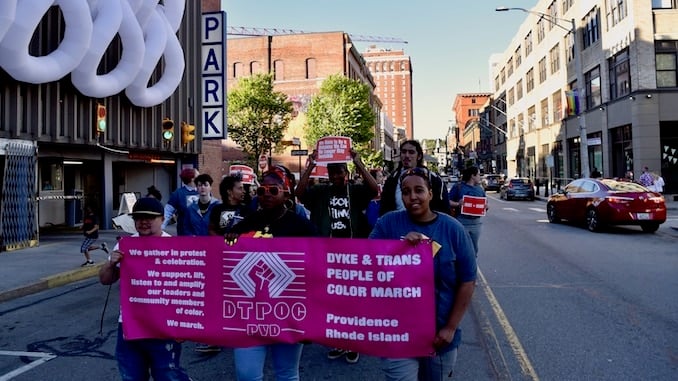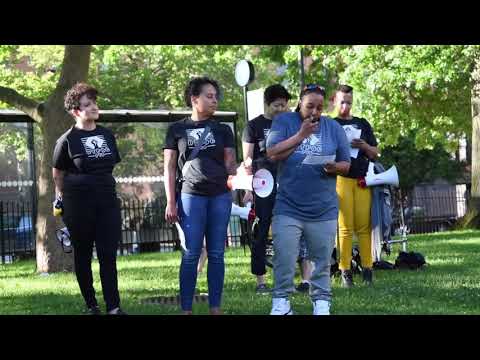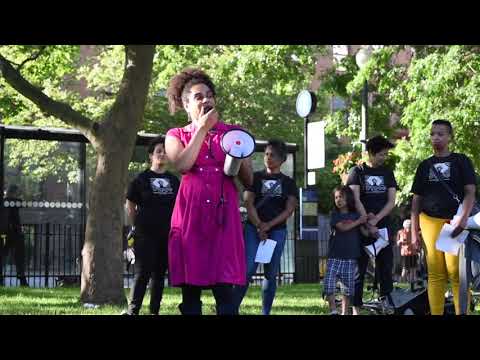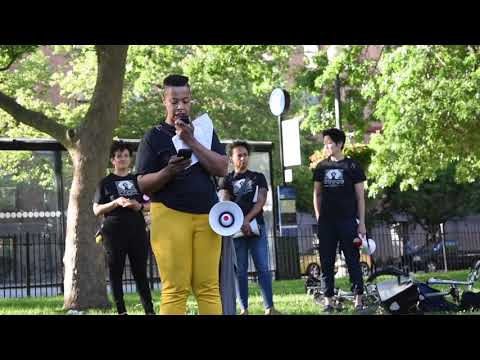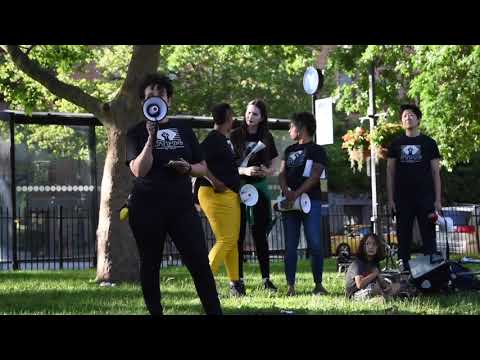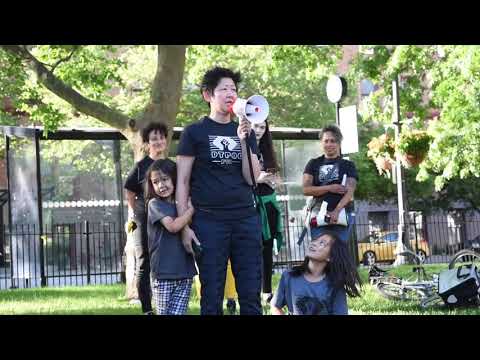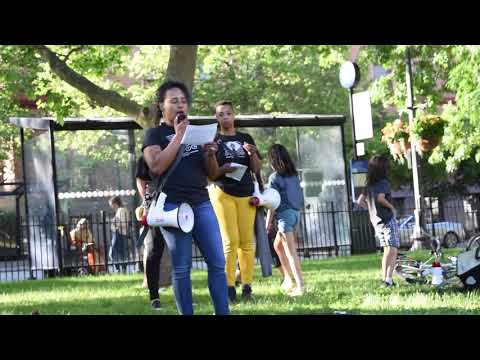Providence’s First Annual People of Color Dyke and Trans March
Every year, around the country, Dyke and Trans Marches are held “to give voice to communities either not represented well or at all in traditional Pride events.” This year marks the beginning of an annual Rhode Island event, centered on Dyke and Trans people of color (POC). The event was deliberately grassroots and had no corporate sponsors. No permits were
June 16, 2019, 11:17 am
By Steve Ahlquist
Every year, around the country, Dyke and Trans Marches are held “to give voice to communities either not represented well or at all in traditional Pride events.” This year marks the beginning of an annual Rhode Island event, centered on Dyke and Trans people of color (POC).
The event was deliberately grassroots and had no corporate sponsors. No permits were asked for from the City to hold the march. Instead, organizers met in Burnside Park and, after a few speakers addressed the crowd, the march began up Washington Street before turning left onto Empire Street.
Though the event was centered around Dyke and Trans POC, white identifying Dyke and Trans persons as well as allies were welcome to join the march.
The event began with one of the organizers, Ancha Santana, introducing Desiree, a part of the Wampanoag Nation, to acknowledge that the “City of Providence currently resides on the traditional homeland of Wampanoag Nation of Seven Houses and it was built by the hard work not only of my indigenous ancestors, but also the many African slaves who cultivated this land.”
“The Stonewall Inn uprising was a fight back, against the police, from a bunch of queers who had nowhere else to go,” said Justice Ameer Gaines, who this year was this year’s Grand Marshal of Pride, along with the Providence Student Union. “They were in a MAFIA owned bar. They had paid off the police that night but the police came any way. And trans women of color, drag queens, street folks, homeless folks, sex workers… It was a bunch of folks on the margins, all the butch lesbians, all the trans women, all the street queens, who were fighting back against the cops. And they weren’t just fighting. They were chasing, they were dancing, they were having fun while they did it.”
Gaines talked about a movie she hosted, Outrage 69 (2003) about the Stonewall Uprising. “It was a wonderful film,” said Gaines. “It talked not only about Stonewall, but the movement following it, and how quickly the movement was co-opted by white men, how quickly women, and trans people, and people of color were sidelined…
“Now, as I think about what Pride has become, I have to think about how do we reclaim spaces? This [POC Dyke and Trans March] is part of it. This is part of taking back the movement that we started, that our ancestors started, that the queer folks of color, the trans women back then, the queens back then, the lesbians back then – They were making this movement. They were making us visible and they were giving us a place in society that society would not give us.”
“Thank you so much for being a positive role model for the adults, but also for the youth,” said Adena Marcelino, one of the March organizers to Justice Gaines. “Coming up in Providence, I didn’t have that. So to see someone able to have that growing up, that’s awesome. That wasn’t around in the eighties and nineties…
“Pride time has never been a big celebration for me,” said Marcelino, “because I’ve never felt represented in the festivities or events. I’d go and see a handful of people of color I grew up with, and we’d chat and see where we all were going to celebrate because there were usually only maybe one or two places that were not only LBGTQ friendly, but also safe spaces for people of color.
“It seems that the only time the community needed us was when they needed facts data and numbers for grants,” continued Marcelino. “We were so accustomed to it being that way that no one ever addressed it. Today, we not only address it, we hopefully start the process creating balance within a community already torn off and thrown away from the world and constantly battling it.
“As a community, who are we to demand equality without already addressing the inequality within our own community?”
As a queer person of color, growing up in Providence, I did not see myself represented in traditional Pride events,” said organizer Michelle Veras. “Instead, people of color are included as an afterthought.
“This is an effort to change that. This is a grassroots event, that we intentionally did not seek permission to hold. We did not seek mainstream funding for [it].” continued Veras, who noted that the rally was funded entirely by donations. “This is the start of something powerful and long overdue in Providence.”
“I’m here because no one is equal until everyone is equal,” said organizer Ayako Takase. “No one is free until everyone is free…”
“Even though Providence is a multicultural City, as we all know, it is extremely segregated,” said organizer Ancha Santana. “This division is ever so evident in the LGBT+ community in Pride events, where we have been rendered invisible. Even in this community and spaces the norm is cisgendered white males and the power and privilege that they carry as such. The power for them to dictate how we are represented in those spaces and events lies in the hands of a few…
“In order to have power, one must have legitimate access,” continued Santana. “I’m here to encourage Dyke and Trans People of Color to claim our own spaces, where we can access how we are represented…
“Don’t be afraid. Unite, and take the power.”
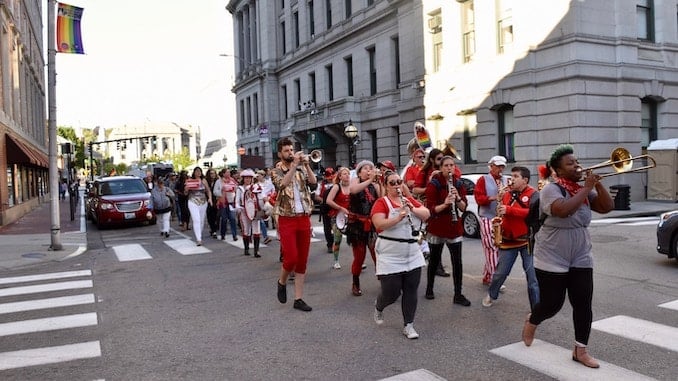
Music was provided by the Extraordinary Rendition Band 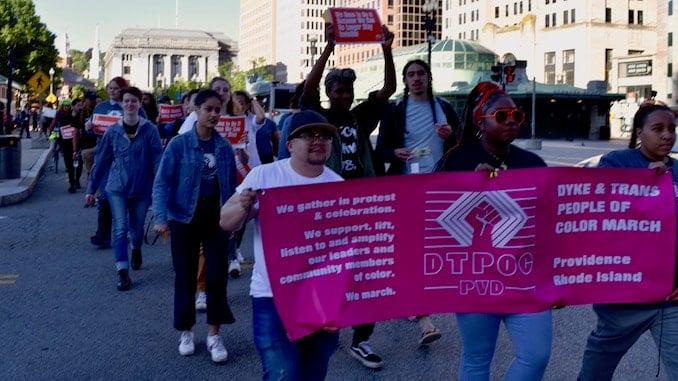
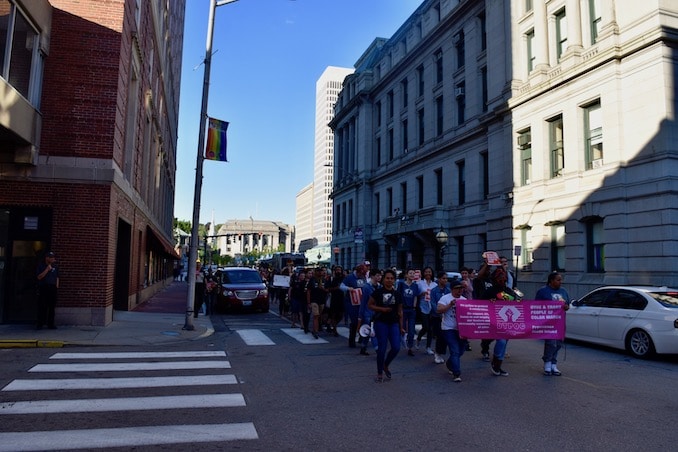
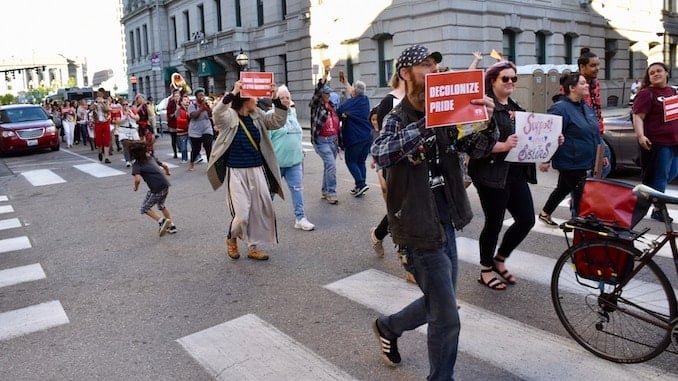
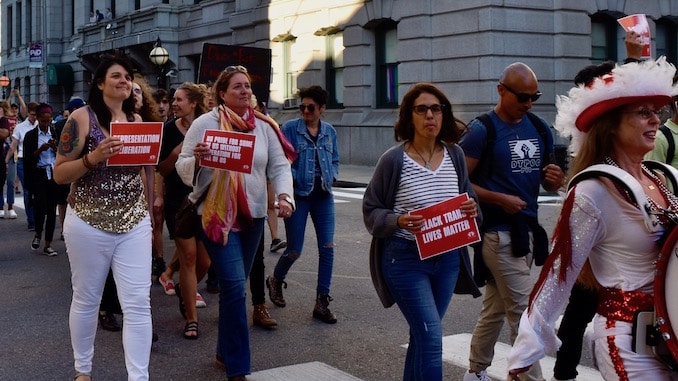
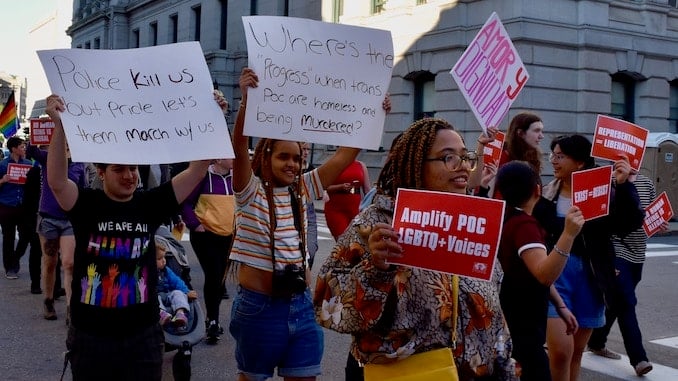
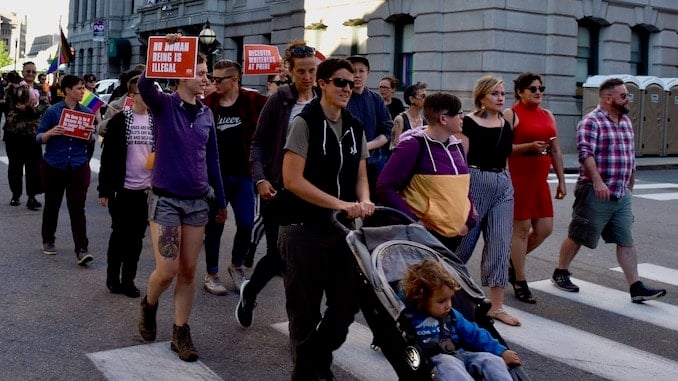
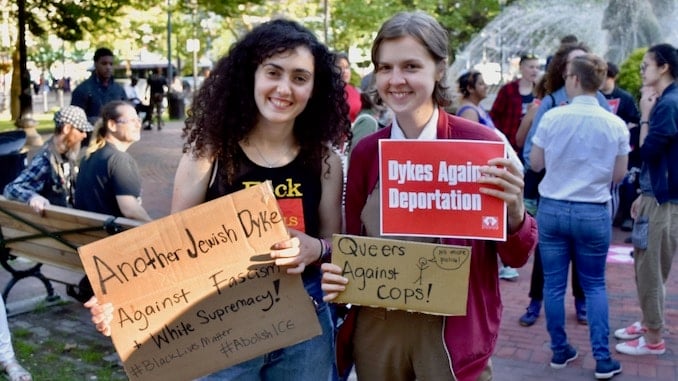
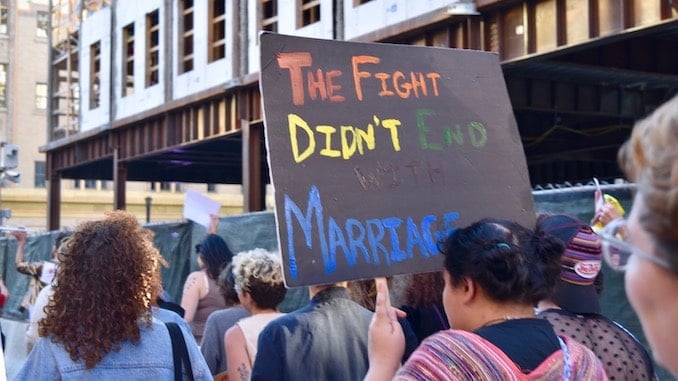
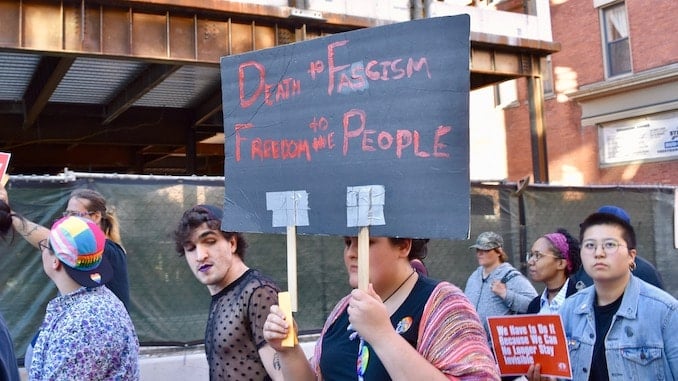
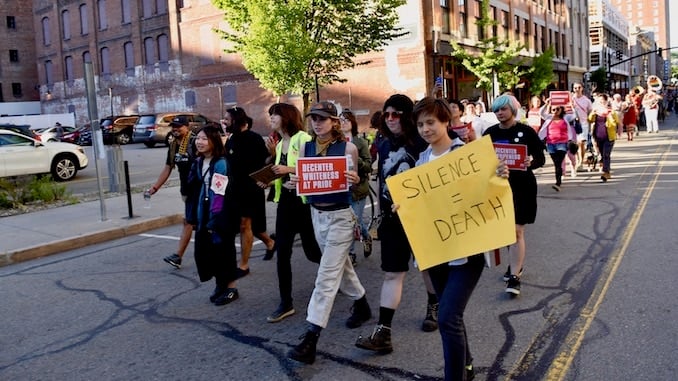
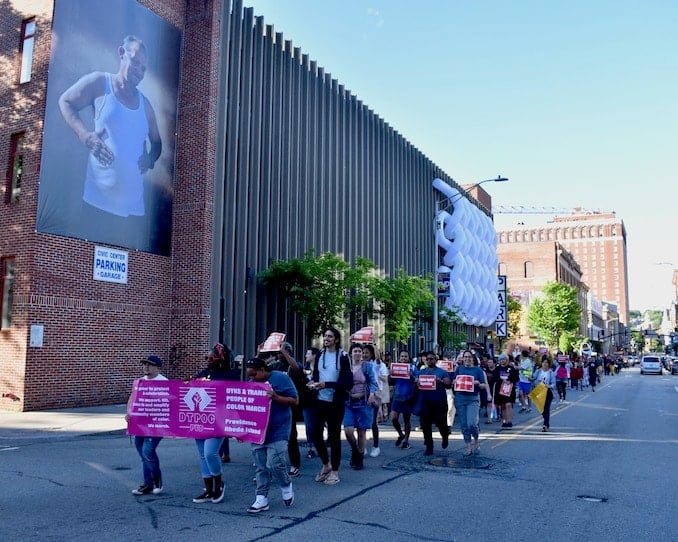
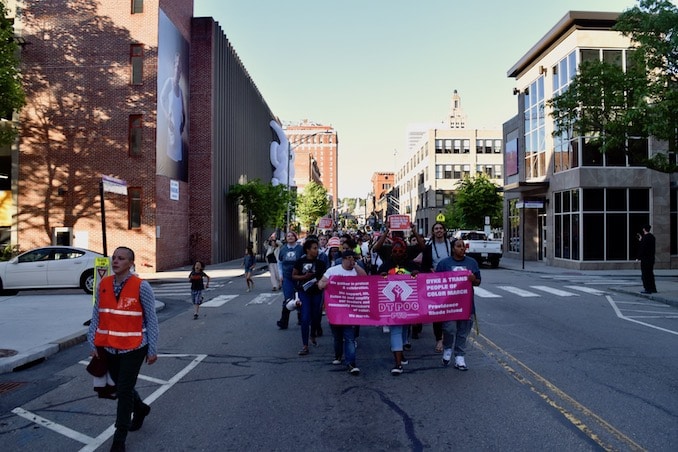
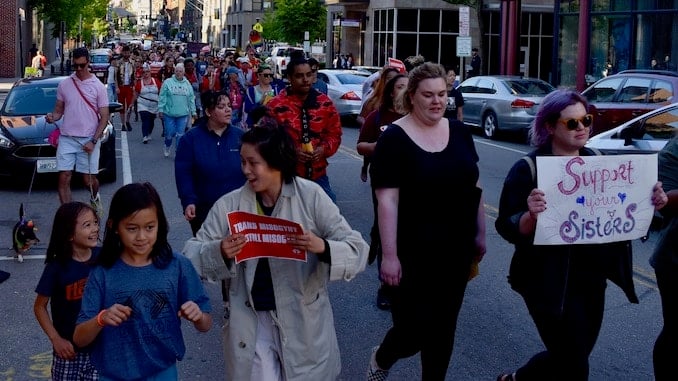
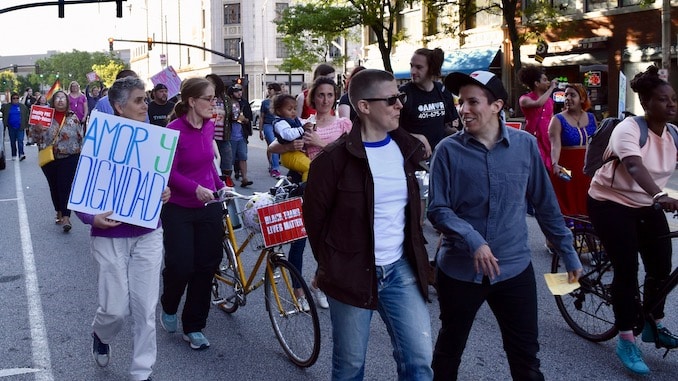
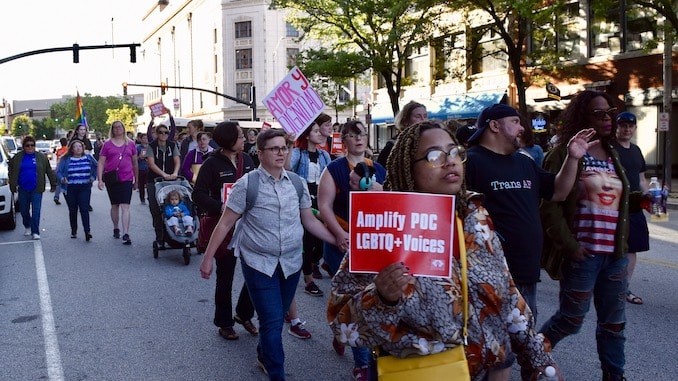
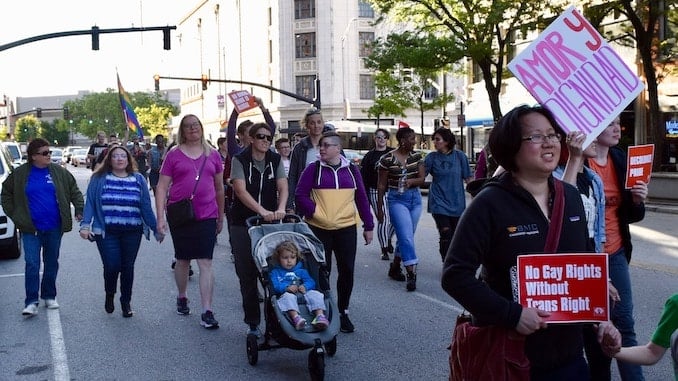
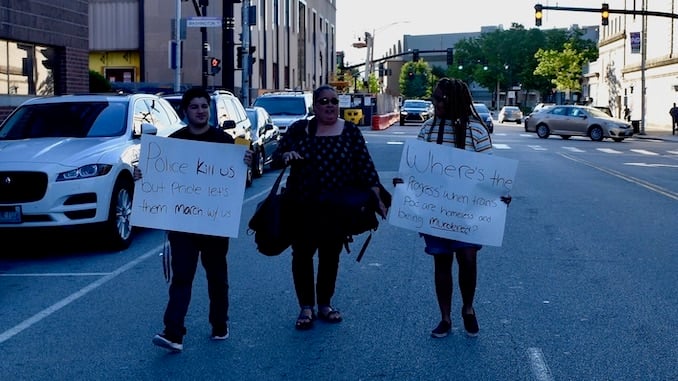
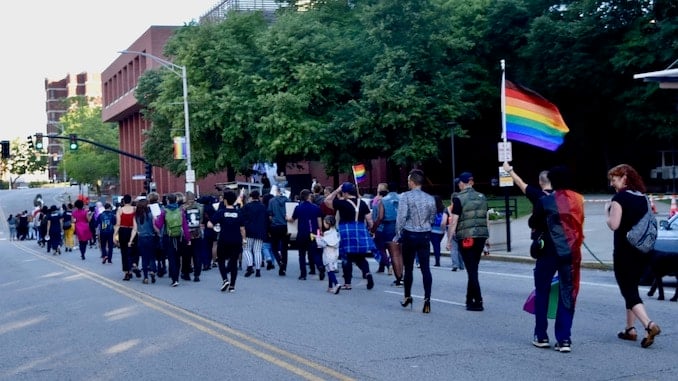
UpriseRI is entirely supported by donations and advertising. Every little bit helps:
Become a Patron!



